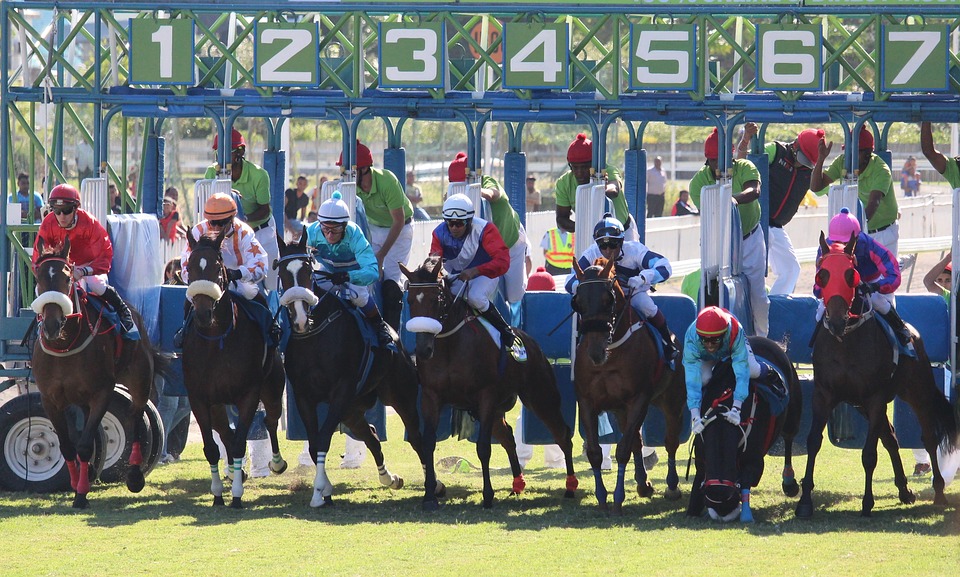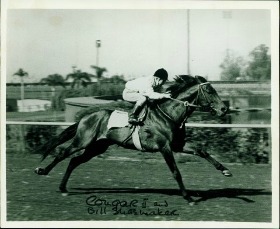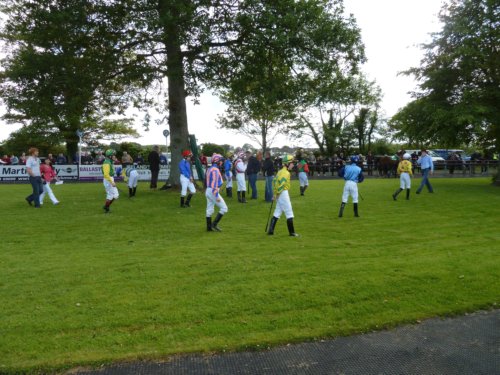Horse Race Results

Horse race results are influenced by 8 major factors that every punter should be aware of.
As you've guessed, the thrill of a horse race is incomparable. Nothing is more exciting than watching these majestic creatures galloping to the finish line. Many factors play an essential role in determining the winner.
Whether it's a jockey's skill and experience or the condition of the track, these eight factors matter most in influencing horse race results. Make it count when you're considering a bet on the horse you fancy..
The Horse
The horse is undoubtedly the star of the show. Its breed, age, and gender are necessary when judging its capabilities on the racetrack. Thoroughbreds are the most successful contenders due to their powerful legs and ability to run fast.
Age of the Horse – The age of the horse is also a factor in how successful it will be during a race. Older horses may have less energy than younger ones and therefore may not perform as well in terms of speed and stamina.
Weight – The weight of the horse also plays a major role in the outcome of the race. The amount of extra weight that is assigned to a horse (known as handicapping) or subtracted from it, affects its performance.
A horse’s past performance is also a major determinant in how a horse will race. Horse racing form includes its condition for the start of the race, its prior performance record, and its overall health status.
Furthermore, a horse's physical condition should also be considered before placing a wager. It needs to have a healthy coat and strong muscles. Its diet should consist of plenty of hay or oats, which provide the necessary energy boost on race day.
 Cougar II
Cougar IIThe Popular Daily Lay Tips UK/IRE £5 per month
Subscribe Below
French Lay Racing Tips for £5 per month
Subscribe below
Racing Tactics that influence horse race results
Racing Tactics
No matter how talented a horse is, it needs intelligent racing tactics to succeed. That's why seasoned jockeys are so crucial for any team. They know when and where to push their horses to the limit and when to slow down and conserve energy.
Distance and Race Dynamics – The length of the race and the competition a horse faces are major factors in the outcome of a race. The dynamics of the race can have a big impact on the result, such as a fast start or a slow-paced sprint.
Moreover, experienced trainers can help riders devise clever strategies to maximize their horse's strengths. Their insights can be essential when it comes to making split-second decisions during a race. And if you want to learn more about horse racing, there are guides like TVG Kentucky Derby guide that can help.
Jockey
The jockey is another essential factor that can influence the outcome of a horse race. Experienced riders possess the necessary skills and knowledge to take full advantage of their steeds. They know how to move them in sync with the terrain, leaning into the turns and pushing them to higher speeds when needed.
At other times, they are able to hold a horse back and conserve energy, allowing it to sprint at the end. That's why seasoned jockeys often make all the difference in winning or losing.
 Jockeys in the Sligo Pre-Parade Ring
Jockeys in the Sligo Pre-Parade RingTrainer
The trainer is the one responsible for preparing the horse, both mentally and physically. It's their job to ensure the animal is healthy and ready to produce its best horse race results on the day. They usually work closely with the jockeys to devise race strategies to give their horses an edge over their opponents.
A horse’s success is also heavily impacted by the kind of training it receives. A horse must be conditioned and prepared in order to achieve its full potential.
Moreover, trainers are also in charge of creating a schedule for their horses. It includes the right combination of rest and physical exercise for optimal performance on the track.
 Aidan O'Brien racehorse trainer
Aidan O'Brien racehorse trainerTrack Condition
The condition of the track is yet another essential factor that can determine a horse race's outcome. Wet or icy surfaces make the competition more difficult, as the horses have to struggle to keep their footing. On the other hand, dry tracks provide better grip and allow them to reach higher speeds with less effort.
The track’s condition is one of the most important factors in determining a horse race’s outcome. Factors such as moisture, dryness, firmness, and surface changes all can play a role in the success or failure of a horse.
That's why the track's condition should be considered when wagering. A slow horse might have an unexpected chance of winning if it's wet and slippery.
Training Methods
The training methods used for a horse also play an essential role in its performance on the racetrack. Some riders prefer to stick to basic exercises, while others like to incorporate more colorful techniques. For example, sand-running or riding your horse up and down hills can help build stamina and resilience.
Ultimately, the goal of any training program should be to make the horse as fit and well-conditioned as possible. With the right combination of physical exercise and mental stimulation, it can become a strong contender in any race.
Weather
The weather can also influence the outcome of a horse race. On hot and humid days, horses tend to become more tired quickly, affecting their performance. Windy conditions can also prove challenging for some riders, as keeping their mounts on track at higher speeds may be difficult.
A horse’s performance can be affected by the weather on race day. Factors such as the temperature, wind speed, and precipitation levels are all elements that have to be taken into consideration.
However, not all weather conditions have adverse effects on horse racing. Cool, dry climates can provide the perfect setting for a memorable race, especially since horses tend to perform better in these conditions. So when selecting the best possible day for an event, the weather should always be considered.
Luck
Luck can also be a factor in horse racing, even if it's not something that anyone can control or predict. Different events may occur during a race – from an unexpected injury to a surprise surge by one of the horses – that could impact its outcome and make it unpredictable. In short, luck is always part of the game.
Also horses are not machines; for example it is not unknown for a horse to jump its own shadow, thus breaking its rhythm and speed. It can also be spooked by something that catches its eye in the crowd or the flight of birds on the course.
The best way to approach horse racing is to take into account all of these factors and do your research before betting. That way, you can increase your chances of success and make sure that luck remains on your side.
Final Thoughts
Betting on horse races can be a thrilling and exciting experience. But it’s important to remember that several factors can influence the outcome of a race – from the jockey, trainer, and track condition to training methods and weather. Considering all these elements is critical to increasing your chances of success.
Click here for more horse racing tips

You Might Like These
Kentucky Derby Odds: Will there be a hometown favorite?
Preakness Stakes Odds: Will the champions face fresh challengers?
Belmont Stakes Odds: At 1½ miles, stamina becomes the great equalizer as longshots can threaten.
Breeders' Cup Odds: International talent collides with American speed, reshuffling expectations across the board.
Dubai World Cup Odds: Under desert lights, can a Japanese sensation prevail against the world's elite.
Pegasus Cup Odds: Retirement beckons for champions seeking one final payday at America's richest race.
Bet on Horses: Every wager tells a story of hope against mathematical probability.
Kentucky Derby Betting: Beneath fancy hats and mint juleps, fortunes change hands with each thundering hoof.
Preakness Stakes Betting: The middle jewel rewards those who recognize when Derby form holds true.
Belmont Stakes Betting: Distance separates champions from pretenders when the final furlong tests them all.
Breeders Cup Betting: Global racing converges for two days where value hides in plain sight.

Returns Policy: Once a customer has agreed to pay for a product or service no returns will be permitted or payments returned.
All PayPal transactions are subject to the PayPal Privacy Policy
Privacy Policy: Personal details provided to this site by an individual may be shared with third parties unless requested otherwise.
Above policies updated 15 March 2018




